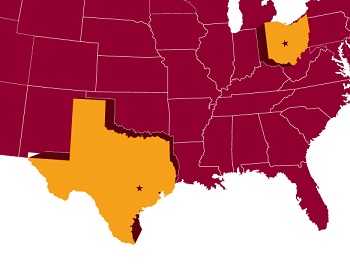Texas and Ohio—Key Points
| < Back | Next > |
|---|
 The Texas and Ohio certification system share the same key points:
The Texas and Ohio certification system share the same key points:
- Neither relies on direct assessment of skills
- In Texas, certification is mandatory for all paid CHWs, but not enforced
- In Ohio, the status of uncertified and volunteer workers is unclear
- Approved training programs are not required to grant academic credit (most in Texas do not)
View Transcript
[SPEAKER]
What can we say about the broadly based CHW certification systems in Texas and Ohio?
First, unlike the regulatory systems that govern most other professions, these systems do not rely on direct assessment of an applicant’s skills, but rather on assessment by instructors in approved training programs. They do not use standardized exams. This strategy places the cost of skills assessment on the training institutions, relieving the state government of that burden. Other options certainly exist, including workplace-based assessment by peer evaluation teams.
In Texas, certification is mandatory for all paid CHWs but neither the law nor regulations impose any penalty for failure to comply. Whether practice by an uncertified CHW places legal liability on the CHW, the employer, or both remains uncertain. The regulatory system in Ohio is silent on the status of uncertified and volunteer CHWs. Neither state requires approved training programs to grant academic credit, and most approved programs in Texas do not.
- Page last reviewed: February 2, 2016
- Page last updated: February 2, 2016
- Content source:



 ShareCompartir
ShareCompartir